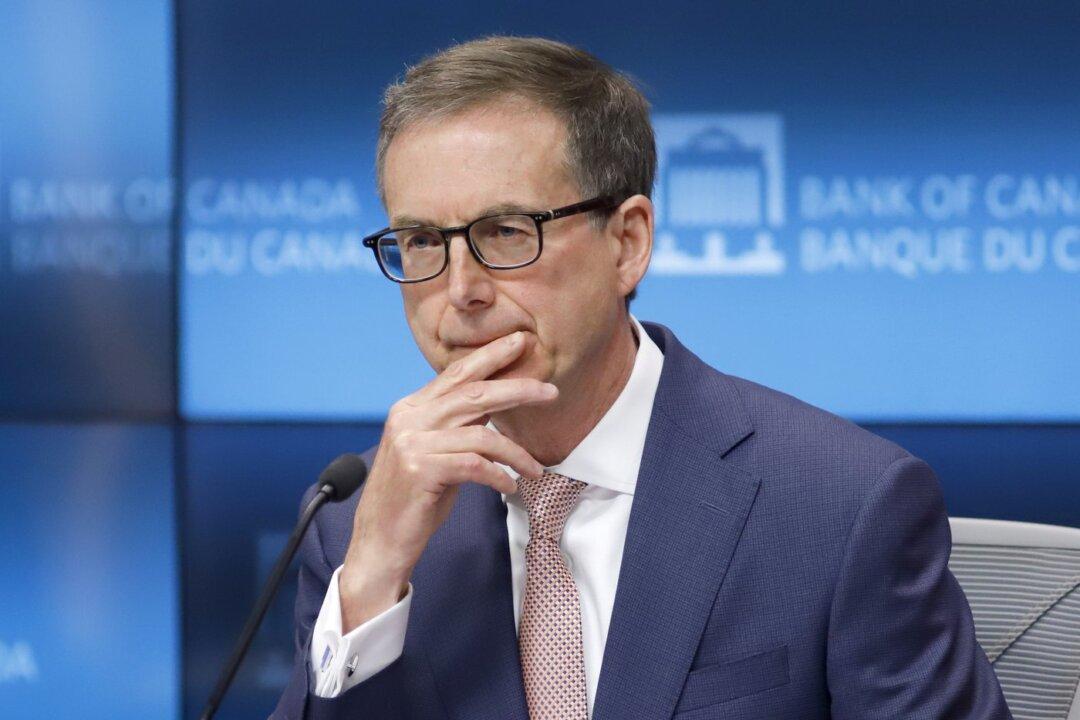The Liberal government has been calling inflation a “global phenomenon,” but Canada’s central bank governor says that it’s “increasingly” a Canadian affair.
“Some of this inflation reflects global developments that we don’t control but inflation in Canada increasingly reflects what’s happening in Canada,” Bank of Canada Governor Tiff Macklem told the Halifax Chamber of Commerce in a speech on Oct. 6.





